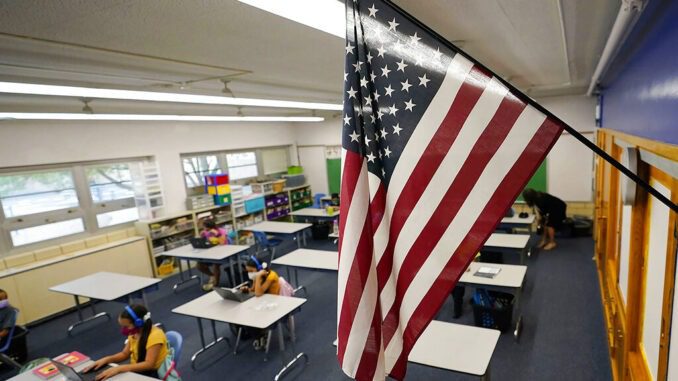
North Carolina has more than 1.4 million K-12 students — which one is yours?
Is your child the rare student with a natural appreciation for Shakespeare’s literary prowess? Does your child feel trapped in her classroom, wishing to be working a job already, putting real-world skills into motion? Does your child shy away from classroom attention, live for it or feel most comfortable in the middle of the pack?
Each of the 1.4 million K-12 students in North Carolina has his or her own unique blend of talents, interests and challenges. What lights up one child’s mind and heart may leave another unmoved.
After more than 15 years of working in education and talking to thousands of parents and teachers, I’ve heard so many student stories with a common theme. This School Choice Week, I want to share what I’ve learned, giving you one action item that can transform how much your child learns and who they become.
Here’s my tip: Choose a school that cultivates your child’s curiosity. For kids, curiosity is the best bridge to learning. It’s also a bridge to happiness.
North Carolina families who have tasted the benefits of customizing education to match their child’s curiosity and interests celebrate it and want more of it. Giving families choices to customize education doesn’t mean building 1.4 million different schools in North Carolina.
Sometimes the biggest block to customizing education is simply not knowing about the school options and support groups for learning that already exist. The pandemic forced many parents to encounter new school options, but more knowledge-sharing needs to be done.
Currently, North Carolina families can choose from several free public school options, including traditional public schools, public charter schools, public magnet schools and full-time online schools. Families can also choose from North Carolina private schools, and students below a certain income level or with disabilities are eligible for state-run scholarship programs, which were recently expanded. Homeschooling is also a flexible option for thousands of North Carolina families.
Within each of these six main types of options, there’s room for plenty of customization. Maybe it’s a public school partnering with businesses to create work opportunities for highschoolers who don’t thrive being in a classroom eight hours a day. Maybe, because of that partnership, highschoolers don’t drop out. Instead, they walk across the graduation stage with valuable skills under their belt that they’re proud of.
Maybe it’s a teacher at a performing-arts magnet school who absolutely loves teaching in an arts-centered environment. Her passion is contagious, inspiring a future generation of musicians.
Or, maybe it’s a private school mom who notices her seven-year-old’s interest in space and takes the time to watch SpaceX launches with him, after which he excitedly dreams of managing a spaceflight company, which he’ll name “Reach for the Stars.”
Customizing for curiosity can appear in many shapes; at heart, it’s pairing kids with the environment and learning conditions that help them flourish. We personalize how we care for pets, our choice of cars, what we eat for dinner, and every other aspect of American life; how much more important is customization in our kids’ education?
This School Choice Week, I encourage you to think about little and large ways to cultivate your child’s curiosity. Wouldn’t it be incredible if each of the 1.4 million North Carolina kids were learning in environments where they were challenged and inspired? I’ve seen the success stories that happen when communities provide flexibility and families find the best fit for them. All North Carolina kids deserve that.
Andrew R. Campanella is the president of National School Choice Week and the author of The School Choice Roadmap: 7 Steps to Finding the Right School for Your Child.


